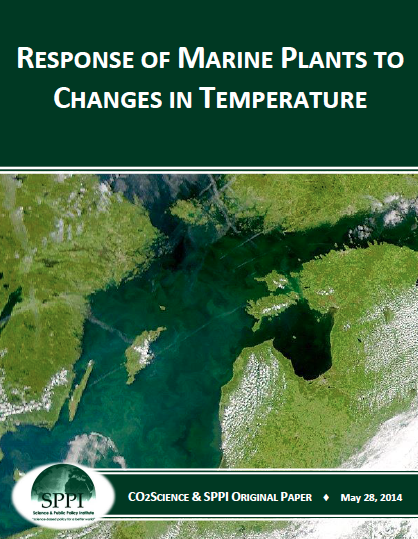News / Science & Technology
Response of Marine Plants to Changes in Temperature

According to the IPCC, CO2-induced global warming will be net harmful to the world's marine species. One consequence of such harm, is a projected decline in ocean productivity. And in light of what the IPCC frequently refers to as the unprecedented modern rise in global temperature, it might reasonably be expected there should already be signs of a major negative impact on oceanic productivity. Yet the studies highlighted in this summary yield little evidence in support of the IPCC point of view.
Sarmiento et al. (2004)1 conducted a massive computational study that employed six coupled climate model simulations to determine the biological response of the global ocean to the climate warming they simulated from the beginning of the Industrial Revolution to the year 2050. Based on vertical velocity, maximum winter mixed-layer depth and sea-ice cover, they defined six biomes and calculated how their surface geographies would change in response to their calculated changes in global climate. Next, they used satellite ocean color and climatological observations to develop an empirical model for predicting surface chlorophyll concentrations from the final physical properties of the world's oceans as derived from their global warming simulations, after which they used three primary production algorithms to estimate the response of oceanic primary production to climate warming based on their calculated chlorophyll concentrations. When all was said and done, the thirteen scientists from Australia, France, Germany, Russia, the United Kingdom and the United States arrived at a global warming-induced increase in global ocean primary production that ranged from 0.7 to 8.1%.
